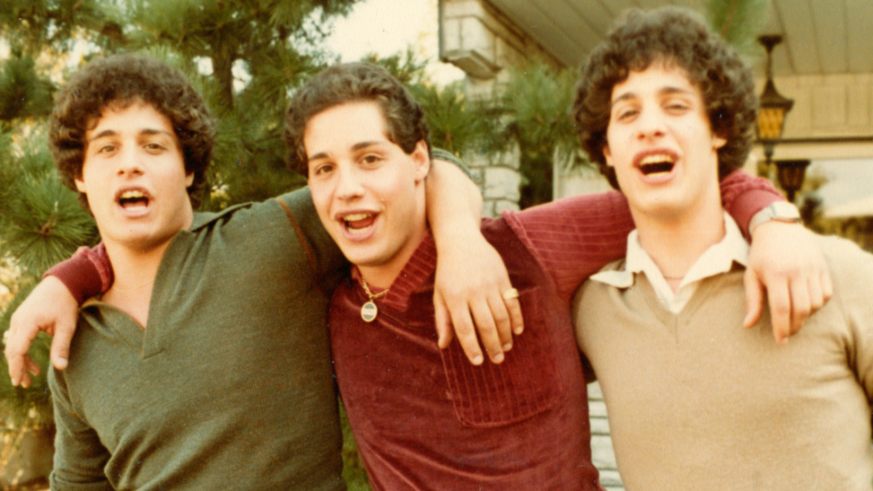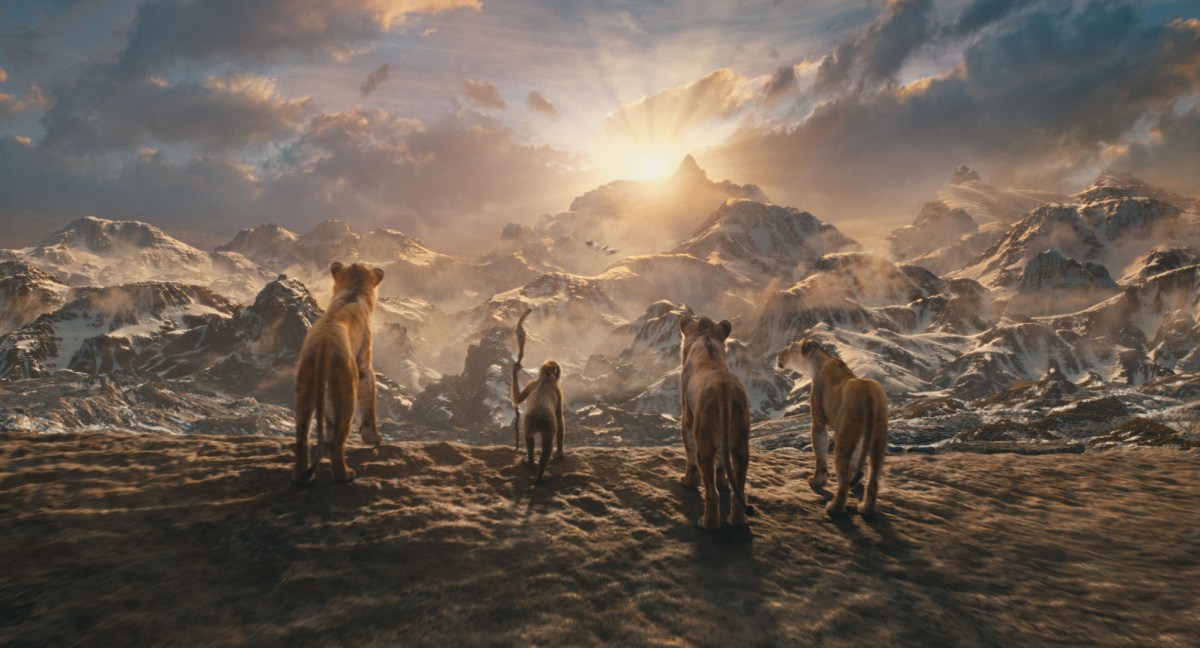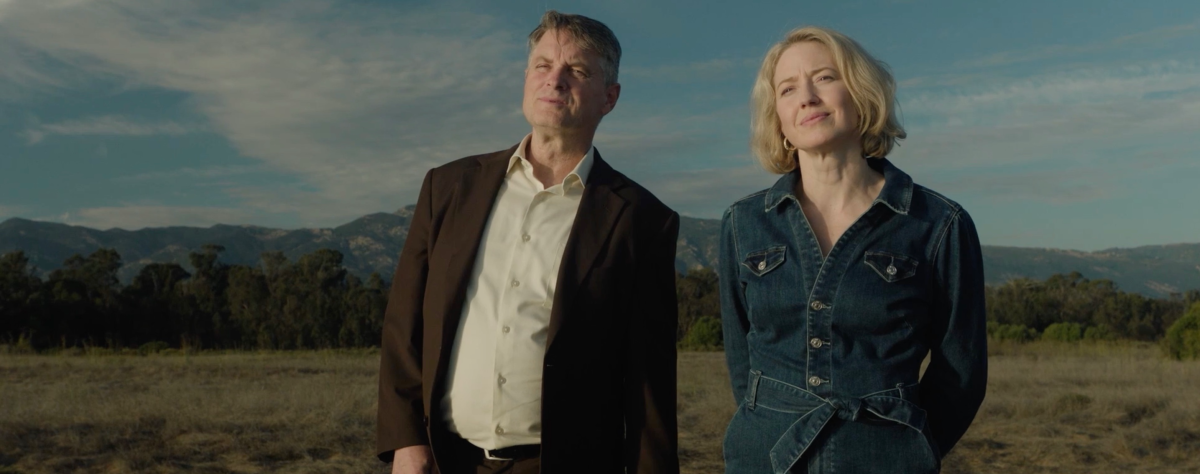It is hard to know exactly how much to reveal about Three Identical Strangers.
If the Sundance award-winning documentary has already come across your radar, you’re probably aware that it revolves around the reunion of three triplets who had been separated at birth, while those of you that are slightly older might well know Bobby Shafran, Eddy Galland and David Kellman because of the celebrity status they acquired in the wake of their extraordinary reunion.
But this seemingly heartwarming story has a dark, disgusting and truly twisted underbelly, which “Three Identical Strangers” hypnotically reveals in a patient and captivating fashion.
Recently I had the chance to talk to its director Tim Wardle, who talked me through his long journey with “Three Identical Strangers,” revealing why he doesn’t think those responsible for separating Bobby, Eddy and David when they just a few months old are actually “evil.”
What was your original reaction when you heard Bobby, Eddy and David’s story?
The first time I heard the story when it was brought in I was like, ‘This is the single greatest story I have ever heard.’ I am not prone to hyperbole, but it really was like, ‘This is bonkers.’ My background was as an idea development guy, I used to do that for the BBC in London. So I’ve seen a lot of stories and ideas, and you get quite cynical and jaded. You feel like you have seen everything before. It was crazy and it worked on a human level, it was a great human interest story, but it worked on thematic levels, too, as it explored nature vs nurture, free-will and destiny, and all that kind of stuff. So it was about something more rather than just being this human story.
Could you immediately envision the film’s structure?
We knew about 60% of the backstory, I knew there were these guys that had been separated at birth and adopted by 3 separate families, but were unaware of each others’ existence, who were then reunited by chance and had become famous. I knew there was a dark reason behind the separation, but not that much detail about it. That was it. And that was what we kind of set out to try and explore and investigate with the film. So the past tense stuff I was able to structure quite tightly. Especially because I had 4 years trying to get it off the ground, getting the trust of the brothers, and raising the money. So I had quite a good idea of the structure of that. But we really didn’t know where it was going. I spent a year trying to raise money exclusively in the UK, with the BFI and people like that. And they just kept on going, ’But what’s the third act?’ It was only when we came out here and we tried to get funding in the US where we were able to make it happen.
What were you doing in those 4 years then?
The biggest challenge was securing the brothers’ trust. And even when we were filming, to be honest with you, sometimes I didn’t know if they were going to turn up or not. Because when you see the extent of their story you understand why they might find it very hard to trust people. So that took a long time. Beyond that I was trying to raise money for the film, we also did a little bit of taster filming, we filmed a little sizzle with the brothers, them talking, and the journalists. Just trying to get interest. It was really hard in the UK, because people would go, ‘It is a great story. But it is an American story and we don’t know how it is going to end.’ What was crazy was I spent all this time in the UK trying to do it, but as soon as we pitched it in the US, it was around 3 and a half years after I started on it, we only sent it to two places, Netflix and CNN Films, and both of them were like, ‘We get it. We want it.’ They weren’t worried about the last third and not knowing how it would play out. They got that it was a documentary and that things were going to unfold in ways that we didn’t understand. I think British filmmakers think of the US of being quite risk averse and quite conservative, but they were totally willing to give it a go, which was amazing.
The film feels very much like a Hollywood thriller, was that genre an influence?
Definitely. I am really pleased you picked up on that. I am a massive fan of Hollywood cinema, genre cinema. When I was a kid and I wanted to be a director I always wanted to be Brian DePalma. I have sort of grown out of that phase a bit now. The influences ranged from ‘The Bourne Identity,’ as well as documentaries. Things like ‘The Thin Blue Line,’ which has investigative elements, but is beautifully shot as well. Myself and the editor were very much influenced by Hollywood cinema. So the opening we wanted to feel like kind of 80s, upbeat comedies, stuff like ‘Secrets Of My Success.’ Not necessarily good movies, but just things that spoke to us. The music in the movie is influenced by those kind of films. I think what I always wanted to do was put the audience through it in that Hitchockian way. I knew it was a fantastic story. People always think you have a care of duty to the subjects, and with this I totally did. But I also felt like I had a duty to do the story justice, too. I just felt like I couldn’t let the story down. So I always knew that tonally I wanted to shift things a bit. A lot of times films establish a tone at the top and then keep it the whole way through. But I always knew that I really wanted to dramatically shift the tones from comedy to identity thriller almost to body horror in places. Really mix it up.
Did you ever want to push its release date back and carry on filming as you learnt more stuff?
All the time. The hardest thing as a documentary filmmaker is knowing when to stop. But the truth is the money kind of ran out. And also we got the film into Sundance, so we had to get the film ready. Because it was such a miracle to get in, so you just had to get it ready and done for that. But it is interesting, one thing I have learnt from this film is, when I started I thought we had to answer everything, we had to have all of the answers by the end. What I realized was that, by the end, this is probably only true for documentary rather than drama, actually it doesn’t matter if you don’t have all the answers. Sometimes it is actually good if it is more open-ended, and people actually have more questions at the end. That was a real revelation to me that not answering everything could be a positive thing.
Do you think the twin study that David, Bobby and Eddy were apart of represents the evil side of America?
It is a central irony of the film that Neubauer, who did the study, and David’s family both came to this country from Austria fleeing the Holocaust and then ended up either side of this experiment. I’m not Jewish, but my wife is Jewish, and she finds watching it really tough. Because Jewish people are not meant to do this to other Jewish people. We get a very strong reaction from Jewish people watching it.
I personally don’t see the people that did this as evil grinning Nazis. There’s that period in the 60s, it was kind of like the Wild West of psychology. Where all of these experiments, they would never get passed by an ethics committee now. But people were pushing the envelope. I am interested in the gray areas of human behavior. It is like what is going on in the States at the moment. It is horrific, but some of those policies were put in place by people that aren’t evil people. They just probably didn’t think through the human cost and impact of what they were doing. That is probably what happened here. They had a great goal in mind, but they lost sight of the impact of the individuals.
I guess it is very easy to do that as a scientist and as a documentary filmmaker. There are weird parallels. While I think what they did was wrong. And by today’s standards it is wrong, and even at the time they probably had a sense it was wrong. Because we know from the research we found that they approached other adoption agencies to take part in it, and they all said, ‘You can’t split up twins and triplets. It is just wrong.’ So they had an inkling at the time. But I am wary of judging them as bad people. That’s why I showed Neubauer’s assistant with all her pictures with the Obamas and Al Gore. Because these people were in these liberal circles. They didn’t consider themselves bad or evil people.
“Three Identical Strangers” is released on Friday.

























